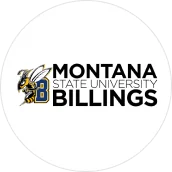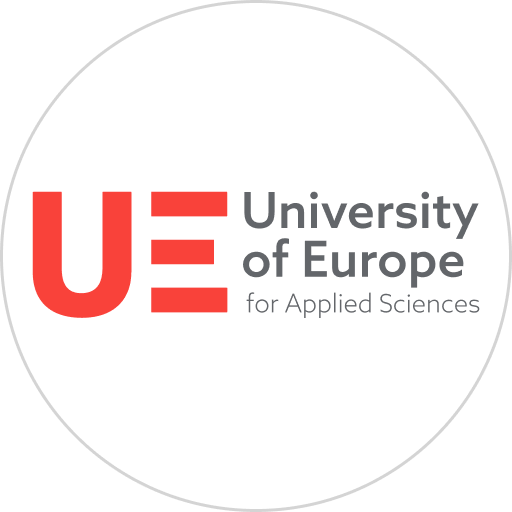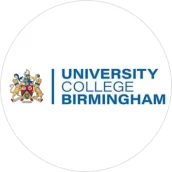• Study in Canada
Masters (MS) in Canada: Top Colleges, Eligibility, Scope for Indian Students
7502 Reads
3 min Read
Canada is a popular destination for international students that combines coursework and research; allowing students to gain diverse experiences and develop research skills. Opting for a Masters in Canada merges coursework and research, fostering diverse experiences and robust research skills. Read to know more about the Canadian universities offering masters, eligibility, scope and much more.
Table of Contents
- • Reasons to Pursue Master's in Canada
- • Intakes to Pursue Masters in Canada
- • Major Specializations for Masters in Canada
- • Master Programs in Canada for International Students
- • Documents Required for Masters in Canada
- • Application Process to Study in Masters in Canada
- • Cost of studying Masters in Canada
- • Career Opportunities for Indian Students after Masters in Canada
- • Post-Graduation Work Permit after Masters in Canada
Canada is considered one of the world's most student-friendly and popular destinations for master’s programs. The country boasts top universities that offer a diverse range of courses and excel in education and research. Masters in Canada is popular for students aspiring to advance their knowledge and skills in scientific, management and mathematical subjects.
Master (MS) in Canada is a 1-2 year postgraduate program offered as an academic or professional degree. It is a combination of both coursework and research. This allows students to gain extensive experience in their field of study and develop their research skills. MS in Canada offers a complete package of advantages including high-quality education, experiences, and opportunities for career advancement.
Reasons to Pursue Master's in Canada
Masters in Canada is a 1-2 year postgraduate program offered as an academic or a professional degree. An MS in Canada is either a course-based program or a thesis-based program. With well-known universities, research opportunities, multicultural experiences, and promising career opportunities, Canada offers an advanced educational journey to international students seeking academic and personal growth. Here are some reasons to choose Canada for pursuing a master’s degree and how it aligns with advancing one's career aspirations.
| Renowned Universities | Canada houses high ranked universities to pursue masters with excellent curriculum, experienced teachers & integrated practical work opportunities. |
| Wide Range of Specializations | Diverse fields, such as medicine, IT, engineering, finance, management, nursing, and design find hubs for specialization in Canada. |
| Affordability | The tuition fee & living costs for studying masters in Canada is more affordable than at any other international educational destination. |
| Scholarships | Canadian universities provide students with high scholarships to international students to help them make financing their studies easier and open doors for top-notch education and research facilities. |
| Job opportunities | A survey by the Canadian Bureau of International Education (CBIE) found that international students who completed their MS in Canada get global job opportunities. |
| Work Opportunities for Students | International students can apply for part-time employment in Canada to gain work experience and cover living expenses. They can work for upto 20 hours per week and more during vacations. |
| A Global Leader in Research & Development | Canadian universities conduct 40% of the world's Research & Development work, with significant research opportunities in areas such as clinical medicine, IT, agriculture, and economics. |
Intakes to Pursue Masters in Canada
Among Canada's three intakes—Fall, Winter, and Summer—the Fall intake reigns supreme among international students. It's widely offered across Canadian universities, boasting diverse courses and attracting the most applicants. Consequently, it often features a lower acceptance rate and larger class sizes. Additionally, it offers abundant scholarship opportunities, alleviating the financial strain for students studying abroad.
| Intakes | Admission Months |
| Fall | A popular intake among international students, the fall (September) intake in Canada begins in the month of September |
| Winter | The winter intake, starting in January, offers the best opportunity to enjoy breezy weather |
| Summer | The Summer (May) intake in Canada typically commences between April and May, accessible for select programs and colleges |
Major Specializations for Masters in Canada
Canada is home to some of the world's leading higher education institutes and offers a wide range of specializations at the post graduate level. Here are some of the most popular MS specializations for students who aspire to study in Canada:
Master Programs in Canada for International Students
Master’s program in Canada goes beyond traditional classes, involving field trips, collaborative projects, and dissertations contributing to course credits. While cost influences choices, students weigh factors like program availability, placement, and university rankings. Here's a table showcasing prevalent master’s degrees and Canadian universities offering them
| Universities | Programs |
| Brock University | • Master of Business Administration (Co-Op Optional) • Master of Business Administration (ISP) (Co-Op Optional) • Master of Professional Accounting (ISP) (Co-Op Optional) |
| Concordia University of Edmonton | • Master of Information Systems Assurance Management • Master of Information Systems Security Management • Master of Science in Information Technology |
| Cape Breton University | • Master of Business Administration In Community Economic Development |
| Lakehead University | • Master of Arts in Economics (Co-Op Optional) • Master of Arts in English and Cultural Studies (Course Based) • Master of Arts in English and Cultural Studies (Thesis Based) • Master of Arts in English and Cultural Studies with Specialization in Gender and Women Studies • Master of Arts in English and Cultural Studies with Specialization in Social Justice Studies • Master Of Arts In Sociology (Course-Based) |
| University of Waterloo | • Master Of Business, Entrepreneurship And Technology |
| University of Windsor | • Master of Applied Computing • Master of Applied Economics and Policy • Master of Business Administration • Master of Engineering In Civil Engineering |
Documents Required for Masters in Canada
Applying for master’s program in Canada requires students to submit the following set of documents with an addition or subtraction from the list as per university specifications:
Application Process to Study in Masters in Canada
Pursuing a Master’s degree in Canada offers an excellent opportunity for international students aiming to start a career. Here's a structured process for applying to study in Canada with the assistance of Canam- India's prominent study-abroad consultant:
| Admission Requirements | The requirements for Master’s program in Canada vary among universities and typically include prior education and English language proficiency, assessed through exams like IELTS, PTE, or TOEFL. Some programs may also require work experience, emphasizing the need for applicants to thoroughly review these criteria before applying. |
| University and Course Selection | The next step involves selecting a suitable Canadian university for Masters, considering factors such as accreditation, location, fees, and campus placement. Once the university is chosen, students should select a program that aligns with their interests. |
| Language Proficiency Test | Students may need to undertake English language proficiency exams depending on the program requirements, achieving minimum scores set by the university to showcase their proficiency if they're non-native English speakers. |
| Applying to Universities | When shortlisting preferred universities, applicants should initiate contact with them. Expert counselors from Canam can help throughout the application process to a Canadian university, ensuring a successful submission. |
Cost of studying Masters in Canada
The total expenses for Masters in Canada can broadly be divided into three stages. These three stages are: -
Three stages of expenses for MS in Canada-
 Pre-Arrival Expenses
Pre-Arrival Expenses
Exam fees, application fees, visa costs, and other one-time expenses are included in the expenses before departing. All of these add up to a substantial portion of students' MS in Canada expenses. These expenses include: -
• Acquisition of GIC
• Application Charges
• Study permits /
• Fees for a student visa to Canada
Flight Expenses
Students from India can select between direct flights and flights with stops. The flight that is selected, the boarding city, the destination city, the class of ticket, the booking date, and the boarding date all affect how much a ticket costs. The price range is CAD 1600–CAD 3200 (approx.).
Post-Arrival Expenses
Once in Canada, the primary expenditures that students must pay for are tuition and living expenses, along with a few personal charges. The tuition fee and cost of living in Canada are covered in detail in the sections below.
• Tuition Fees
• Living Expenses
• Health Insurance
The typical Canadian fee for international students enrolling in undergraduate (UG) and graduate (PG) programs are mentioned below. This is the normal tuition for international students enrolled in a first-year course in Canada.
| Courses | Average Tuition Fees (in CAD)(approx.) |
| Computer Science | $27,000- $53,000 |
| MBA | $30,000-$65,000 |
| Data Science | $24,000- $40,000 |
| Engineering | $21,500- $53,000 |
| Public Health | $22,000- $39,000 |
| Finance | $30,000- $55,000 |
| Nursing | $30,000- $59,000 |
Career Opportunities for Indian Students after Masters in Canada
Indian students who pursue a Masters in Canada find a myriad of career pathways open to them due to the country's welcoming environment and expansive job market across diverse industries.
After completing their Masters, Indian students can explore numerous in-demand career opportunities in Canada:
| Information Technology | Students specializing in Computer Science or data science have prospects in technology firms, startups, and multinational companies. Roles like IT Service Specialist, Developer, Operations Analyst, Specialized Consultant, Systems Administrator, and Project Coordinators are prevalent. |
| Engineering | Canada boasts a robust engineering sector. Graduates in various engineering fields can secure positions in manufacturing, construction, energy, software development, and cybersecurity industries. |
| Business & Management | With a thriving business sector, graduates in fields like business administration, management, or finance find job openings in banking, consulting, technology, sustainable energy, and more. |
| Healthcare | The country's publicly funded healthcare system offers opportunities for those with Masters in healthcare fields like public health, nursing, or health management. Roles include healthcare administration, research, health information management professional, senior data scientist, and clinical and medical health office assistant. |
| Education | Graduates in education-related fields such as curriculum development, educational administration, or special education can explore teaching or administrative roles, program director positions, and more in Canadian schools, colleges, and universities. |
| Natural Resources | Canada's wealth of natural resources presents opportunities for those specializing in forestry, agriculture, or environmental science. Roles span industries like mining, agriculture, forestry, as conservation scientists, zoologists, wildlife biologists, environmental specialists, hydrologists, geoscientists, and professors. |
Post-Graduation Work Permit after Masters in Canada
The Post-Graduation Work Permit (PGWP) in Canada enables graduates to work professionally in fields connected to their academic program. Students eligible for PGWP in Canada can apply for the permit within 180 days after finishing their program. The permit's duration varies from 8 months to 3 years, contingent on the length of the completed program.
| Program Duration | PGWP Program |
| 8-24 months | duration of the program |
| 24 months | 3 years |
| More than 1 months | Combined length of the program |
*Final decision on the duration of PGWP rests with the Canadian government.
Conclusion
Canada presents an expansive array of specializations within the post graduate sphere, promising rewarding career prospects and competitive salary packages. Masters in Canada offers diverse opportunities to students. From research to coursework, there are plenty of courses to pursue as per a student’s interest. Deciding to study in Canada sets a global platform for students. Connect with Canam experts and learn more about masters in Canada by exploring programs and getting solutions for studying abroad.
FAQ
Get great articles direct to your inbox
The latest news, articles, and resources, sent straight to your inbox every month.
Popular Universities to Study Abroad
World class education waiting for you.

Seneca Polytechnic - Seneca at York Campus
Ontario, Canada • 102 Programmes
Tuition Fee : CAD 15000-32000 / year

Manitoba Institute of Trades and Technology
Manitoba, Canada • 27 Programmes
Tuition Fee : CAD 13000-22500 / year

Montana State University - Billings
Montana, USA • 43 Programmes
Tuition Fee : USD 19000-19500 / year


Global University Systems (GUS) - University of Europe for Applied Sciences - Iserlohn Campus
North Rhine-Westphalia, Germany • 19 Programmes
Tuition Fee : EUR 12700-12700 / year


Memorial University of Newfoundland - St Johns Campus
Newfoundland and Labrador, Canada • 47 Programmes
Tuition Fee : CAD 20500-21000 / year
.png)
Popular English Language Proficiency Exams
Blogs and Articles
Curated content to keep you updated on the latest education trends, news and more.
Updated on • Jul 17,2025 05:33 PM IST • USA
PTE Accepted Universities in Australia
Updated on • Jul 17,2025 05:09 PM IST • PTE
Part-Time Jobs for International Students in Australia
Updated on • Jul 17,2025 03:44 PM IST • Australia
Updated on • Jul 12,2025 04:02 PM IST • USA
Updated on • Jul 11,2025 11:32 AM IST • Education
CPT vs OPT: Meaning, Difference, and How to Apply
Updated on • Jul 11,2025 10:40 AM IST • USA
Masters in Computer Science in UK: Top Colleges, Eligibility, Scholarships
Updated on • Jul 10,2025 11:29 AM IST • study in the UK
Highest Paying Jobs in the World
Updated on • Jul 08,2025 01:40 PM IST • Study Abroad
MBA in Australia for Indian Students: Best Universities, Requirements, Scholarship, Courses, Jobs
Updated on • Jul 08,2025 01:35 PM IST • Australia
Canada vs Australia: Which Country is Better for Indian Students in 2025?
Updated on • Jul 07,2025 12:46 PM IST • Education
France vs Germany: Which Is Better for International Students?
Updated on • Jun 30,2025 05:15 PM IST • Education
Top 10 Agricultural Universities in USA
Updated on • Jun 27,2025 05:25 PM IST • USA
Most In-Demand Future Careers in 2025
Updated on • Jun 26,2025 04:41 PM IST • Education
How Much Do Nurses Make in the U.S.?
Updated on • Jun 23,2025 03:59 PM IST • USA
Updated on • Jun 21,2025 02:00 PM IST • USA
MBA in UK: Universities, Eligibility, Types, and Career Opportunities
Updated on • Jun 19,2025 04:09 PM IST • UK • study in the UK
Scholarships in France for Indian Students
Updated on • May 29,2025 05:22 PM IST • France
Intakes in Dubai for Indian Students
Updated on • May 27,2025 03:34 PM IST • Study in Dubai
France Student Visa 2025 – Requirements, Fees, Checklist & Application Process
Updated on • May 23,2025 03:36 PM IST • France
MBA in France for Indian Students in 2025
Updated on • May 22,2025 05:35 PM IST • France
Related Blogs and Articles
A little effort to provide an authentic and reliable content for keen readers!!
Updated on • 22-05-2025 • Study in Canada
Job Opportunities in Canada for Indians: Salaries, Best Job Sites & More
Updated on • 20-05-2025 • Study in Canada
Updated on • 24-01-2025 • Study in Canada
Canada Student Visa Interview Questions
Updated on • 23-01-2025 • Study in Canada
Updated on • 15-01-2025 • Study in Canada
September/Fall Intake Canada 2025: Timeline, Universities & Admission Requirements
Updated on • 03-01-2025 • Study in Canada
Updated on • 02-01-2025 • Study in Canada
Life in Canada as an Indian Student
Updated on • 26-12-2024 • Study in Canada
Timeline for Winter (January) Intake in Canada 2025
Updated on • 21-12-2024 • Study in Canada
Updated on • 05-12-2024 • Study in Canada
Best Cities to Study in Canada
Updated on • 21-11-2024 • Study in Canada
Bachelor of Architecture in Canada
Updated on • 13-11-2024 • Study in Canada
Canada Study Visa - Fee, Requirements, How to Apply & More
Updated on • 05-10-2024 • Study in Canada
Study intakes in Canada - Fall, Winter & Summer
Updated on • 03-10-2024 • Study in Canada
Letter of Recommendation (LOR) for Canada: University Requirements, Sample and Writing Tips
Updated on • 26-09-2024 • Study in Canada
New Rules & Regulations in Canada for International Students
Updated on • 31-08-2024 • Study in Canada
Public Transportation in Canada for International students
Updated on • 29-08-2024 • Study in Canada
Healthcare in Canada for international students
Updated on • 27-08-2024 • Study in Canada
Courses in Canada for International Students
Updated on • 10-08-2024 • Study in Canada
Top PG diploma Colleges in Canada - Courses, Eligibility & More
Updated on • 06-08-2024 • Study in Canada












